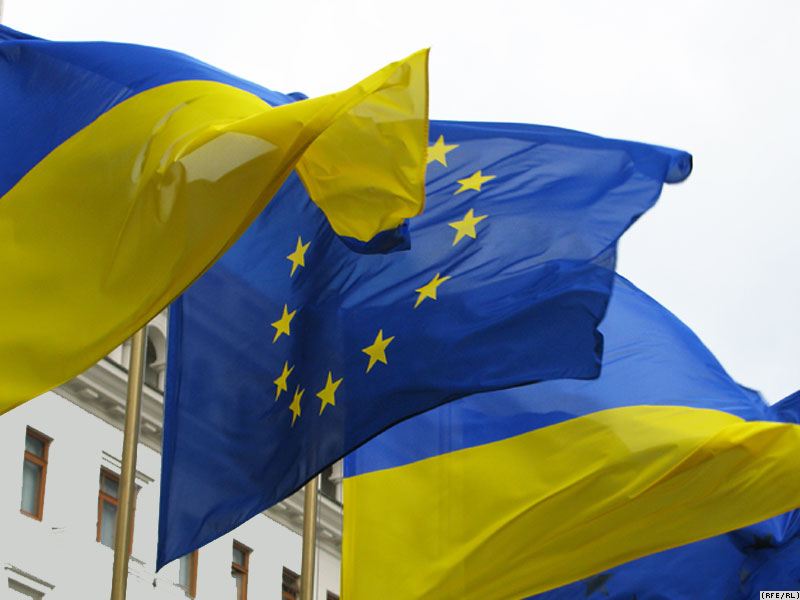
Brussels Chooses to Initial Only Part of Association Agreement with Ukraine
Publication: Eurasia Daily Monitor Volume: 9 Issue: 65
By:

The Ukraine-EU association and free trade agreement will not be concluded this year, Kyiv has admitted after only part of the text of the agreement was initialed in Brussels on March 30. Ukrainian Deputy Foreign Minister Pavlo Klimkin and EU negotiator Miroslav Lajcak initialed the political section plus only the first and last pages of the free trade part, which constitutes the bulk of the text (Segodnya, March 31; lb.ua, April 1). This means that it will take more months to initial the rest of the agreement before its signing and ratification not earlier than next year. The EU has taken a pause in order to see whether the parliamentary election scheduled for October 28 will be free and fair and for Kyiv to have more time to solve the general problem of selective justice and the specific problem of former Prime Minister Yulia Tymoshenko and her imprisoned allies. Europe insists Ukraine has to release them.
Ukraine started the talks on the association and free trade agreement with the EU in March 2007. Kyiv hoped the agreement would be signed in December 2011, ratified by the EU in 2012 and take effect in 2013. Early last year, the free trade talks stumbled as Kyiv and Brussels could not agree on the conditions of access of Ukrainian goods and services to the EU market. The problem was resolved by last October, when the free trade talks were completed. The association talks were completed in November, but by then it had become clear that the agreement would not be initialed, let alone signed, in December.
This was because the EU condemned last October’s seven-year imprisonment of Ukrainian former Prime Minister Yulia Tymoshenko for exceeding her authority in the January 2009 talks with Russia’s Gazprom as a case of politically motivated selective justice (see EDM, January 6). On February 27, a court in Kyiv also imprisoned former Interior Minister Yury Lutsenko, who has been Tymoshenko’s ally, to four years in jail on charges that were obviously trumped up. This only confirmed the opinions of those in the EU who believe that Ukraine is not ready for the association agreement. The foreign ministers of Sweden, the UK, the Czech Republic, Poland and Germany said in an article published in the New York Times on March 4 that Ukraine’s actions blocked the signing and ratification of the association agreement. EU enlargement commissioner Stefan Fule said the agreement could be signed at the end of this year if the situation in Ukraine “changed” (Interfax, February 27).
The delay with the signing of the agreement shows that Brussels has lost hope that the situation will change soon. Ukrainian Foreign Minister Kostyantyn Hryshchenko has admitted that the agreement would be signed no earlier than in six to 12 months’ time in the most optimistic scenario. He explained the delay by claiming that the EU bureaucracy was too slow compared to Ukrainians in working on the text (liga.net, March 30). However, speaking in an interview with the Spanish newspaper El Pais, Hryshchenko accused the EU of double standards, saying that while the EU condemned Tymoshenko’s imprisonment for unfair contracts, it did not mind Iceland prosecuting its former Prime Minister Geir Haarde over his role in the 2008 financial crisis. He also said Ukraine would not accept any additional conditions for signing the association agreement (Ukrainska Pravda, March 31).
Klimkin revealed that only some 170 pages of the 1,700-page document were initialed on March 30. He predicted that the rest would be initialed only by the end of summer (Kommersant-Ukraine, April 2). Ukraine’s envoy to the EU, Kostyantyn Yeliseyev, was even more pessimistic, saying that it was difficult to predict when the agreement would be signed. At the same time, Yeliseyev attributed the delay to technical issues. He said that as Ukraine and the EU had started the talks before the adoption of the EU reform treaty, known as the Treaty of Lisbon, more time was needed to adapt the association agreement text to that treaty (lb.ua, March 31). This argument hardly holds water as the Treaty of Lisbon was signed in December 2007 so there has been plenty of time to avoid any contradictions between the treaty and the EU-Ukraine association accord.
Meanwhile, the Italian police have detained another Tymoshenko ally, former Kharkiv Region governor Arsen Avakov who is wanted by Ukrainian prosecutors. Tymoshenko’s bloc and another opposition caucus in parliament, Our Ukraine, have issued a joint statement saying that Avakov was another victim of political persecution under the same article No. 365 of the Criminal Code according to which Tymoshenko was indicted last October. Avakov reportedly fled Ukraine last September (Ekonomicheskie Izvestia, March 28). Avakov’s case will again attract the attention of the EU to the problem of selective justice in Ukraine, which is likely to affect the association agreement process. Last year, the Czech Republic and Austria chose not to allow the extradition of several Ukrainian oppositionists including Tymoshenko’s husband. Italy may follow suit, which would further undermine Ukraine’s international credibility.




